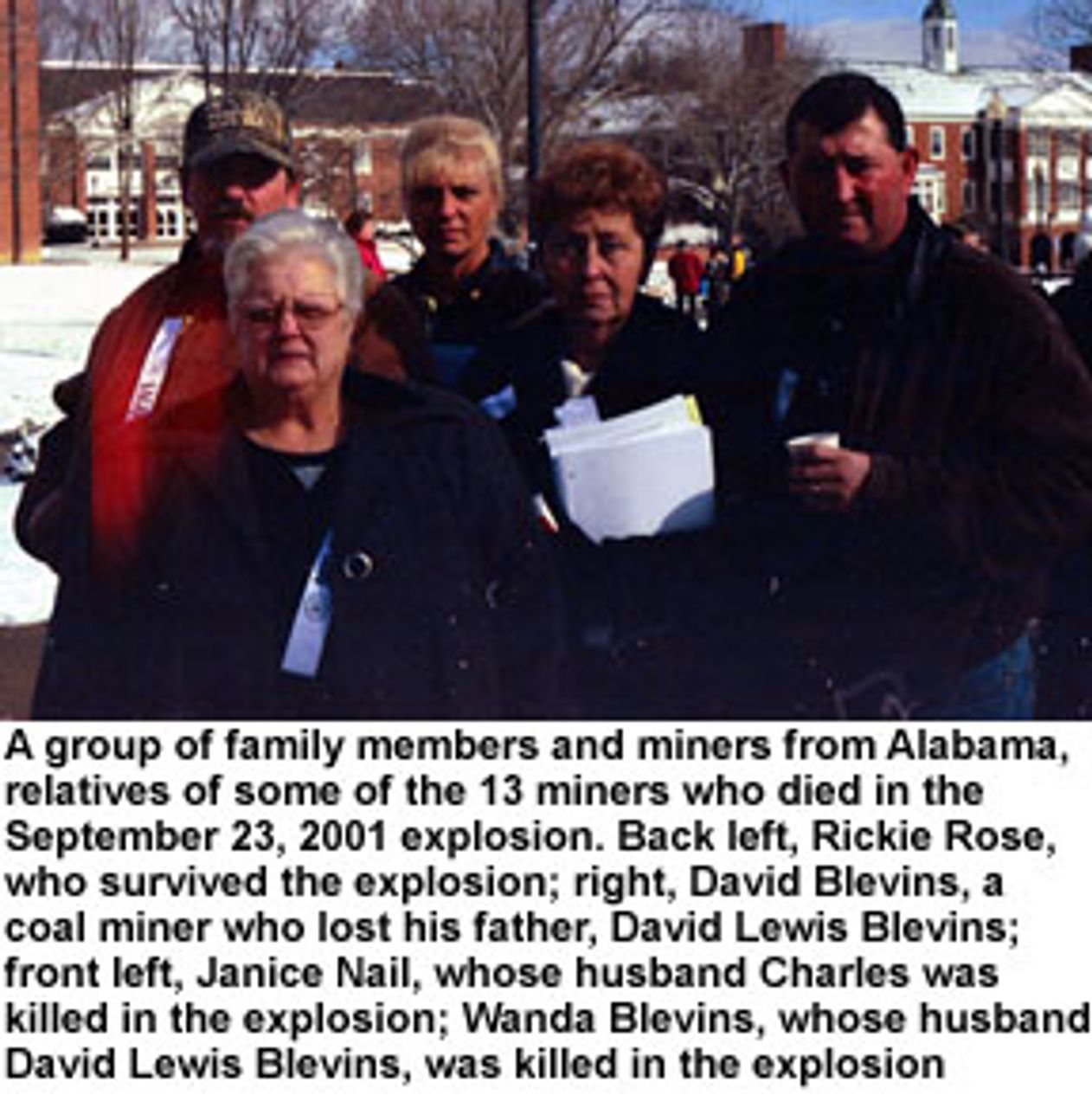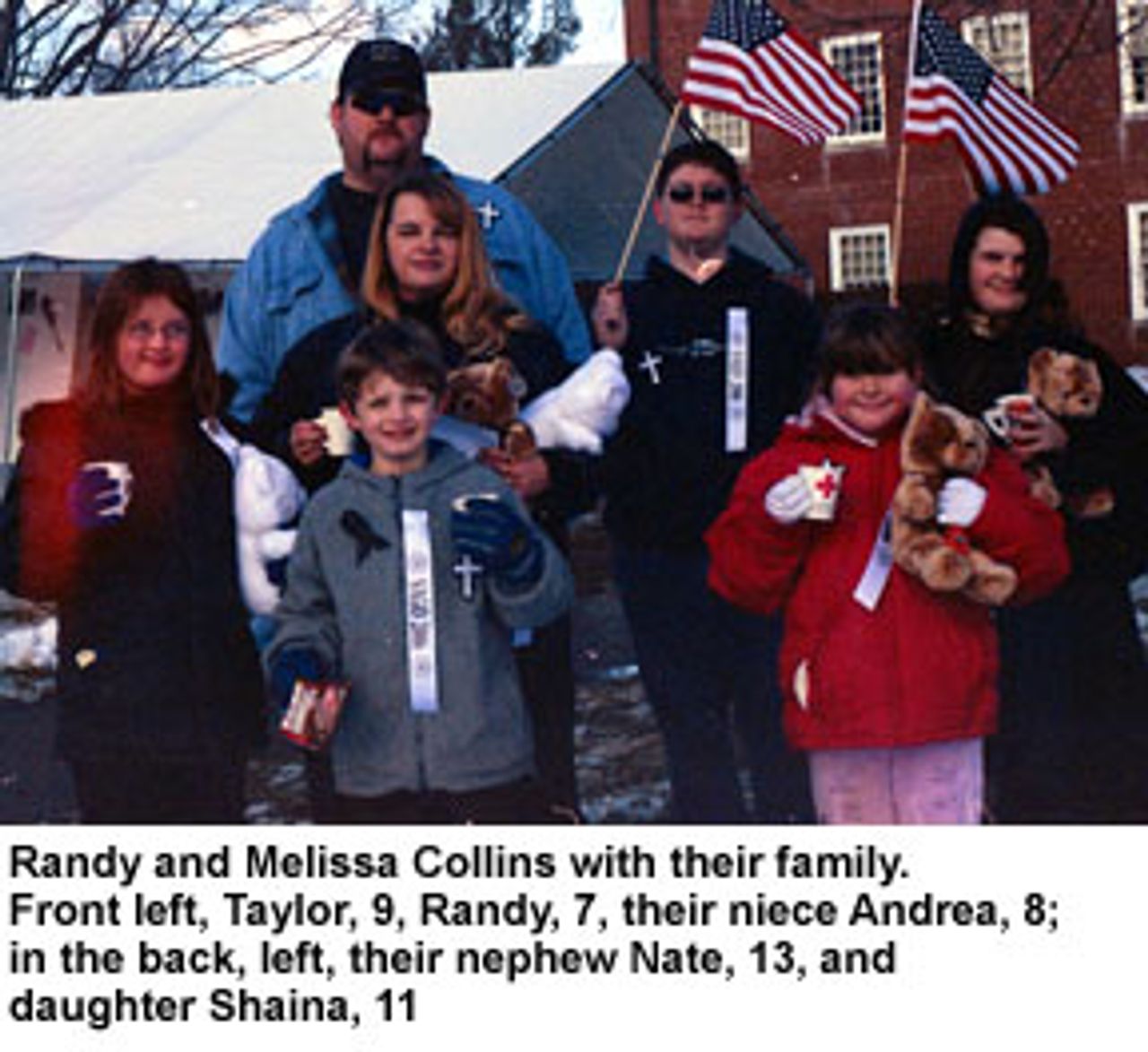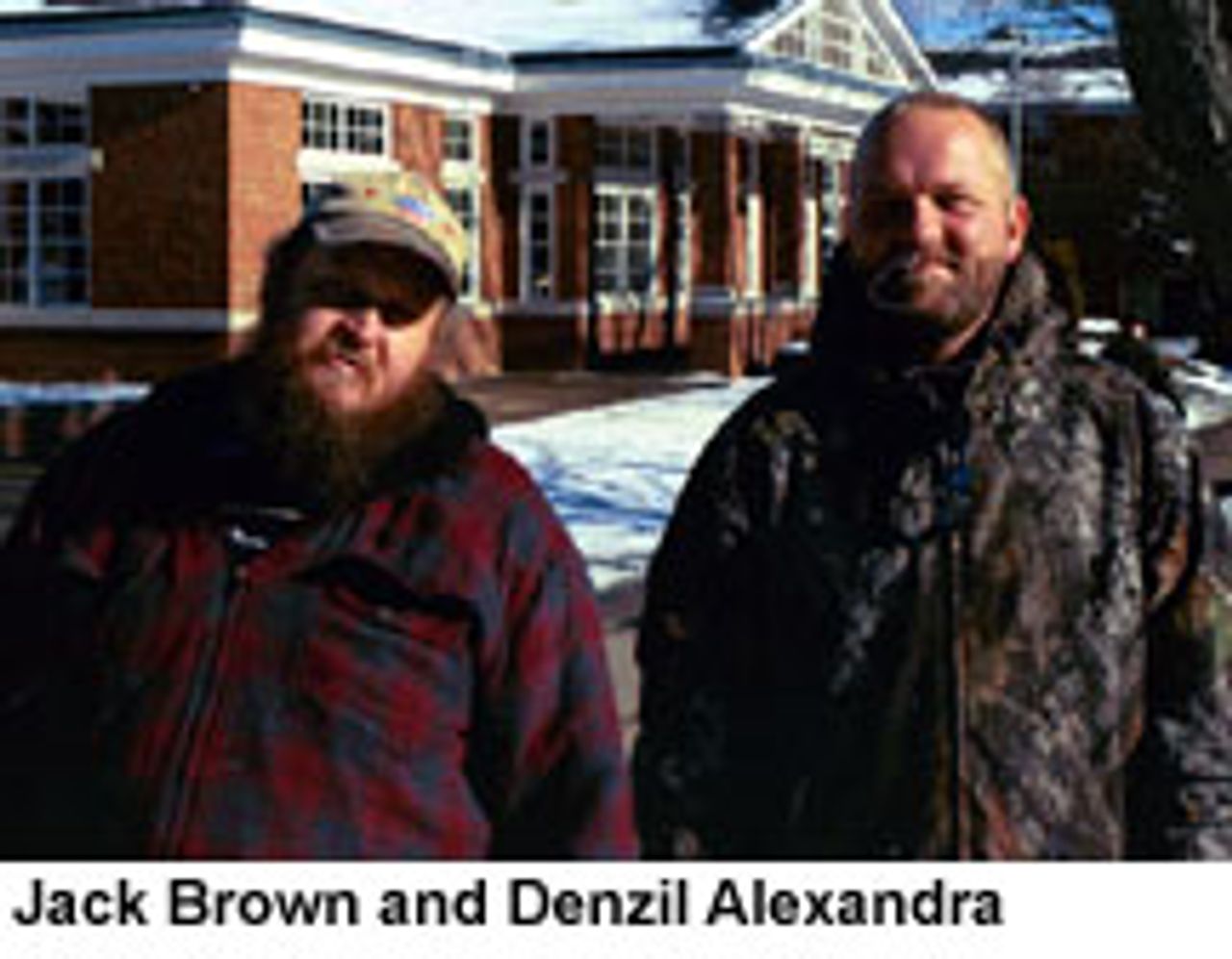More than 2,000 people from West Virginia, Pennsylvania, Kentucky, Ohio and Alabama attended the memorial service at the West Virginia Wesleyan College chapel in Buckhannon, West Virginia, just a few miles from the Sago mine where 12 miners were trapped and killed after a January 2 explosion. (See “Memorial service for Sago miners preaches fatalism and submission”) Randal McCloy Jr., 26, the only survivor, remains in a coma at West Virginia University’s Ruby Memorial Hospital.

Coal miners and friends attending the memorial service spoke to the World Socialist Web Site about the lack of safety at the mine and cuts in funding that delayed the rescue efforts, which may have cost the men their lives.
“I couldn’t believe they allowed that mine to open back up,” said Randy Collins, a friend of fallen miner Fred Ware, who works for a trucking company that picked up coal at Sago. “They shut that mine in 2004 because it was unsafe and they open it back up without fixing the problems in it. The government should never have allowed that mine to reopen.

“There are a lot more things that the companies could be doing to make these mines safe,” continued Randy. “They could build a safe room where the miners could go in an emergency. You go so many feet and put another one up just like they do with the phones. Had those boys had oxygen they would still have been alive today. They should have a backup communication system that won’t go down in an explosion or a fire.
“A lot of things could have been done to prevent this. A company should not be allowed to operate that violates safety the way they did at that mine. Everybody is for the money. You have to get that coal up and to the wash plant. I feel that they should care more about the men.”
Last year alone, the Sago mine had 19 roof falls and 208 safety violations, 96 of which were categorized as “serious and substantial,” the highest level of Mine Safety and Health Administration violation. Eighteen times sections of the mine were shut down or equipment couldn’t be used until repaired. There were also 16 “unwarrantable failure” citations, meaning violation of safety rules were so obvious it has to be considered willful. Yet despite this safety record MSHA never shut down the mine.
 “Safety inspectors can be bought off,” said Jack Brown, a friend of Alby Martin Bennett, one of the men killed and a miner himself. “We had a man crushed on the beltway at the mine where I worked and they didn’t even make them shut the belt down.
“Safety inspectors can be bought off,” said Jack Brown, a friend of Alby Martin Bennett, one of the men killed and a miner himself. “We had a man crushed on the beltway at the mine where I worked and they didn’t even make them shut the belt down.
“I haven’t seen a politician yet who worked in the mines. They don’t care about our safety, just about making money. Bush has a lot to do with this, the safety inspectors don’t mean a thing and that comes from Bush on down.
“Six hundred dollars a week working in a mine is good money around here. There aren’t that many jobs that pay well. If you get one you are afraid of speaking up for fear of losing it.
“When the space shuttle blew up, they stopped the whole space shuttle program and found out the problem before they went up again. Well, why shouldn’t they do the same thing for miners? Shut it down until they find out and fix what is wrong. I know what is going to happen, Sago will get a slap on the wrist and they will keep on going.”
“These miners have no rights,” said Danzil Alexandra, who works as a surveyor. “If you bring up a safety issue they fire you. They just tell you to go on down the road and they will get somebody else to do the work. These men have families to feed and the mines are the best paying jobs in the area. The job situation is not so good around here—it has not been so good for a while.”
Danzil also criticized the inadequacies of the rescue operation. “There should be fire and rescue crew trained and right there at the mine, not have to wait hours before they arrive. They could come up with some type of GPS tracking system, so they could pinpoint where the men are and drill a hole right to them and get them fresh air.
“You just don’t put men in a dangerous place. They can put men on the moon—they ought to be able to use that technology to make it safe for miners.”
A group of co-workers and surviving family members of the 13 coal miners killed in 2001 at the Jim Walter Resources No. 5 mine near Brookwood, Alabama also attended the memorial service.
“If the government had followed our recommendations these men would not be dead,” said Rickie Rose, a coal miner for 28 years who was severely injured in a second explosion at the mine as he and other miners attempted to rescue their co-workers.
“We said that miners should have walkie-talkies so that they could communicate if the main phone goes out. Had those miners had that, they could have been told to put on their respirators and walk to fresh air.”
David Blevins, who lost his father in the Brookwood explosion, said, “We had MSHA come in and inspect our mine and they fined the company $435,000. This wasn’t even the maximum penalty. The company was keeping separate books, one with the real safety problems, another with the reports they signed off on. We have a room with state of the art technology from where they monitor everything going on in the mine. When they started getting alarms, the supervisor in the room turned them off and told the men to stay where they were.
“They dropped those fines from $435,000 to just $3,000. They are giving the coal operators a green light to go ahead.
“We wrote recommendations for changing things and none of them have been followed. These men would be alive today if the coal operators and the government had learned from what happened to us.
“We were very stupid to believe that they would do an honest and fair report on what happened. How can a government agency investigate itself? If MSHA issues fines at Sago, they will be reduced and 50 percent will just get thrown out.
“I worked as a miner for 19 years. I’ve worked in Virginia, West Virginia and Alabama. We are all coal miners who are supposed to be protected by MSHA. This is about coal miners having a safe place to work.
“I warn these families not to believe that anything will be fixed from an investigation here.”
Subscribe to the IWA-RFC Newsletter
Get email updates on workers’ struggles and a global perspective from the International Workers Alliance of Rank-and-File Committees.
